How AI is Transforming the World of Gaming
14 November 2024
Artificial Intelligence (AI) is no longer just a buzzword in the tech industry—it's a game-changer, quite literally. From the way we interact with video games to how game developers create more immersive worlds, AI is reshaping the gaming landscape in ways we couldn't have imagined a decade ago. Whether you’re a casual gamer who wants smarter enemies or a developer looking to enhance the realism of your virtual worlds, AI is at the heart of it all.
Today, let’s dive deep into how AI is transforming the world of gaming and why it’s something you should be excited about.
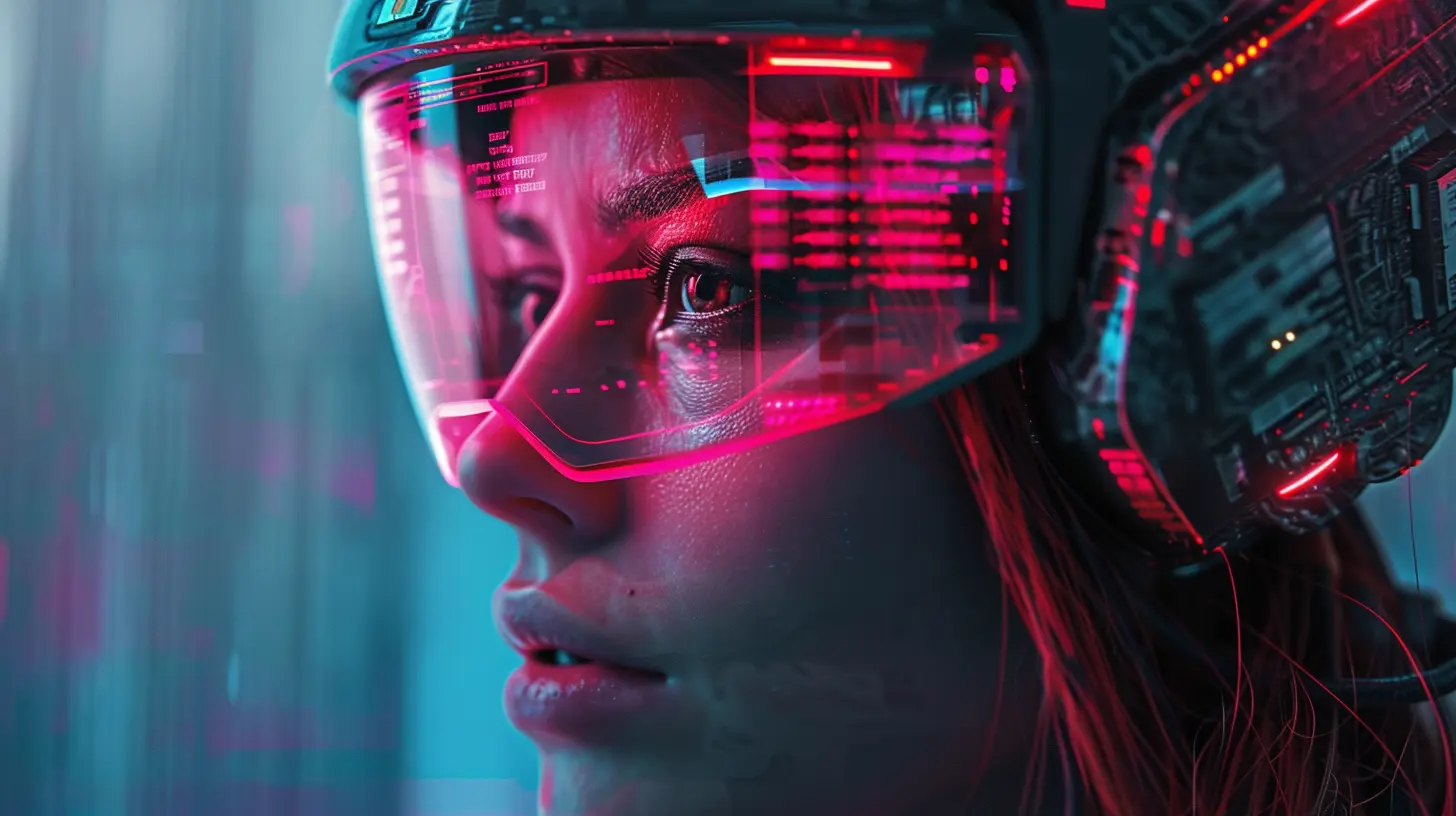
AI in Gaming: What’s the Big Deal?
You might be wondering, "Why is AI such a big deal in gaming?" Well, let’s break it down. Traditional video games used to rely on pre-scripted behaviors and algorithms that could feel, well, predictable. You know, the kind of game where the enemies always follow the same path, or the NPCs (non-playable characters) repeat the same dialogue over and over? That’s the old-school way.AI, on the other hand, brings adaptability, unpredictability, and intelligence to the table. It’s like giving your game a brain that can learn, evolve, and react based on what the player is doing. Imagine playing a game where the enemies don’t just mindlessly charge at you but instead adapt to your strategies. Or picture a world where NPCs have conversations that feel natural and real, not robotic. That’s the magic of AI.

Dynamic Difficulty Adjustment
Ever played a game that was just too easy and got boring? Or, on the flip side, one that was so tough you wanted to throw your controller across the room? AI has a solution for this: Dynamic Difficulty Adjustment (DDA).DDA is where the game’s AI studies your behavior and adjusts the difficulty in real time. If you’re crushing the competition, the AI might ramp things up to give you a challenge. If you’re struggling, it’ll ease off so you don’t get frustrated. It’s like having a personal game coach that’s constantly tweaking the game to suit your skill level.
This creates a more engaging experience for players. You stay in the “flow” zone—a balance between challenge and enjoyment—which keeps you hooked longer. Games like “Left 4 Dead” and “Resident Evil” use this concept to ensure players aren’t overwhelmed or bored.
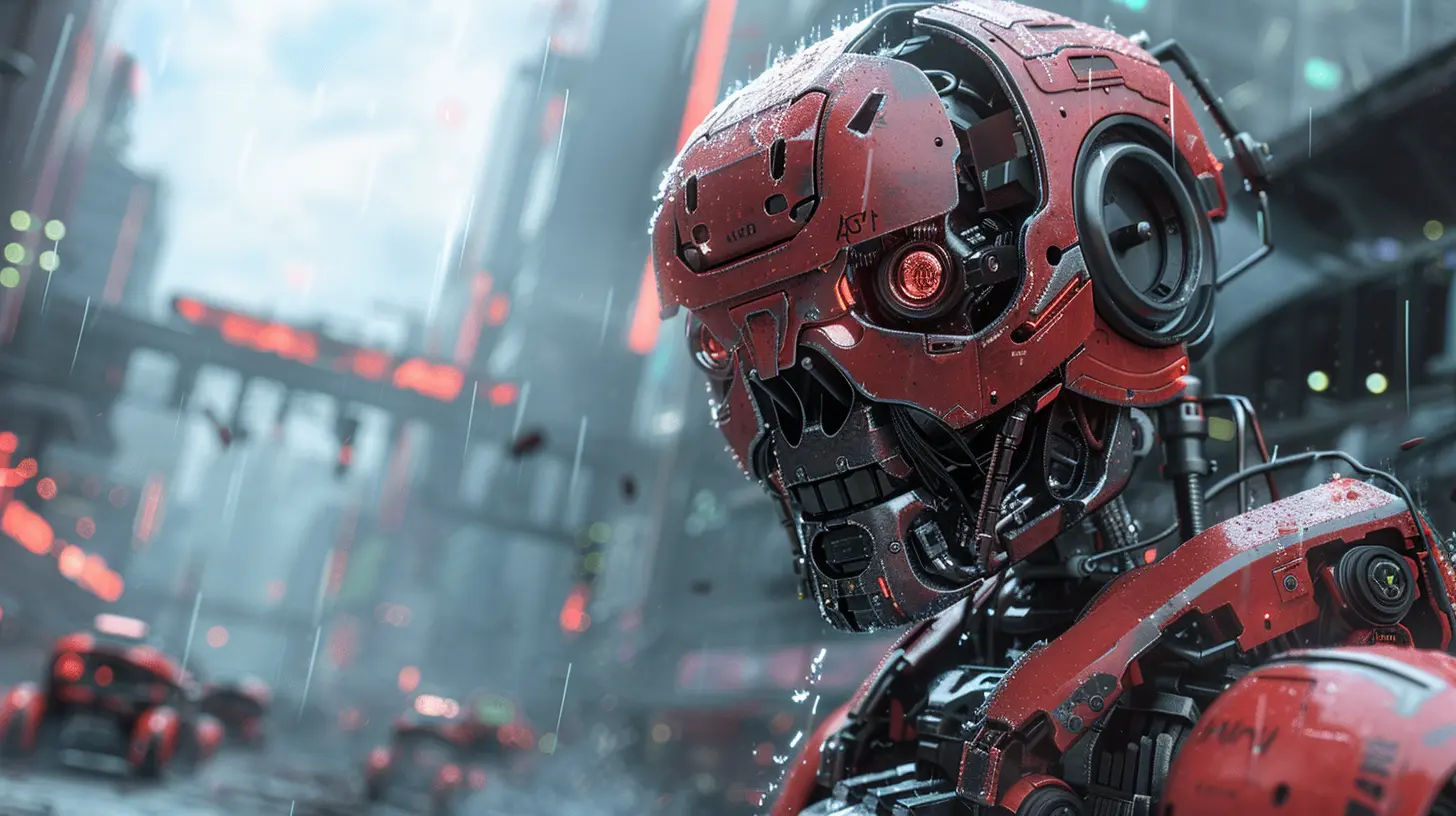
Smarter NPCs
Remember those NPCs we mentioned earlier? The ones that repeat the same lines or act like they’ve had a lobotomy? AI is changing that, too.Modern AI allows NPCs to have more complex, lifelike behaviors. They can make decisions based on context, adapt to the player's actions, and even interact with the environment in a more believable way. For example, in games like “The Elder Scrolls V: Skyrim,” AI-driven NPCs can have daily routines, form relationships, or react differently based on the player’s actions. This makes the game world feel more alive and dynamic, as if you’re part of a living, breathing ecosystem.
Not to mention, AI-powered NPCs can now hold more realistic conversations. Instead of being limited to pre-coded dialogues, advanced AI chatbots can generate responses based on the player’s questions or actions. Imagine asking an NPC about a quest, and instead of replying with a canned response, they give you a unique answer based on what’s happening in the game world. That’s next-level immersion!
Procedural Content Generation
Gone are the days when game developers had to manually design every level, character, and environment. AI is now helping developers generate these assets on the fly through a process called Procedural Content Generation (PCG).PCG allows AI to create game content in real-time, meaning that no two playthroughs are ever the same. With AI, developers can generate endless worlds, dungeons, and missions without needing to manually craft each one. The game “No Man’s Sky” is a fantastic example of this, where AI generated an entire universe with over 18 quintillion planets—each with its own unique landscapes, creatures, and ecosystems.
This not only provides players with virtually limitless content but also saves developers time and resources, allowing them to focus on fine-tuning the game mechanics and other important aspects of gameplay.
Personalized Gaming Experiences
Have you ever wished a game could be tailored to your personal preferences? AI is making that possible.With advancements in machine learning, games can now analyze your playstyle and preferences to offer a more personalized experience. For instance, if you prefer stealth over combat, AI can adjust your missions or level design to suit that playstyle. If you’re more of a story-driven player, the game might emphasize narrative over action. It’s like the game is learning who you are and adapting to make sure you’re having the best experience possible.
This kind of personalization is already being used in games like “Middle-earth: Shadow of Mordor” with its Nemesis system, where AI learns how you play and adapts enemy characters accordingly. If a particular enemy defeats you, they’ll remember that, taunt you, and even grow stronger the next time you face them. It’s a unique and personal experience every time.
AI for Game Testing and Development
AI isn’t just improving the player experience—it’s also making game development easier and more efficient.One area where AI is particularly useful is in game testing. Traditionally, developers had to rely on human testers to find bugs and issues, which can be time-consuming and expensive. Now, AI-driven bots can simulate thousands of gameplay scenarios much faster than a human ever could. They can test different combinations of actions, uncover hidden bugs, and even stress-test the game’s mechanics. This allows developers to catch more issues before the game is released, leading to more polished and bug-free games.
On the development side, AI is being used to create more realistic environments, characters, and animations. Using neural networks and deep learning, AI can generate lifelike textures, facial animations, and even voice acting. This reduces the time and effort needed to create high-quality assets, allowing developers to focus on the more creative aspects of game design.
AI and Virtual Reality (VR)
Now, let’s talk about how AI is taking things up a notch in Virtual Reality (VR). If you thought VR was already immersive, wait until you add AI into the mix.AI-powered characters in VR can respond to your movements, voice, and even emotions. Imagine walking into a virtual world where NPCs react based on your body language or facial expressions. They can engage in conversations with you, help guide you through quests, or even offer personalized advice. It feels less like playing a game and more like being inside a living, interactive world.
Additionally, AI can adjust the VR environment in real-time. If you’re in a horror game and the AI senses that you’re not scared enough, it might dial up the intensity—perhaps adding unexpected jump scares or creepy noises to keep you on edge. On the flip side, if you’re feeling too freaked out, it might tone things down to give you a breather. It’s like having a director behind the scenes, orchestrating your experience based on your emotional state.
AI in Esports and Competitive Gaming
Esports has exploded in popularity in recent years, and AI is helping to take the competition to the next level. AI is being used to analyze player performance, identify patterns, and even offer real-time coaching.For example, AI can study professional players’ strategies and suggest ways to improve. It can analyze your gameplay and recommend adjustments to help you play more effectively. Whether it’s suggesting better positioning in a game like “League of Legends” or optimizing your build order in “StarCraft,” AI can be your personal esports coach.
In competitive gaming, AI is also being used to detect cheating or unfair play. By analyzing gameplay patterns, AI can identify when a player is using hacks or cheats, ensuring a fair gaming environment for everyone.
The Future of AI in Gaming
So, what does the future hold for AI in gaming? The possibilities are pretty exciting.We’re already seeing AI systems that can create entire games from scratch, like OpenAI’s GPT-3, which can generate text-based adventure games based purely on user input. As AI continues to evolve, we could see more AI-driven game designers creating unique experiences tailored to individual players.
Moreover, with advancements in AI-driven storytelling, we might soon have games where the narrative is entirely shaped by the player’s decisions and interactions, resulting in infinite possibilities for storylines and endings.
AI could also lead to more immersive multiplayer experiences. Imagine playing with AI-powered teammates that communicate, strategize, and work with you as if they were real players. The line between human and AI opponents could become so blurred that you won’t be able to tell the difference.
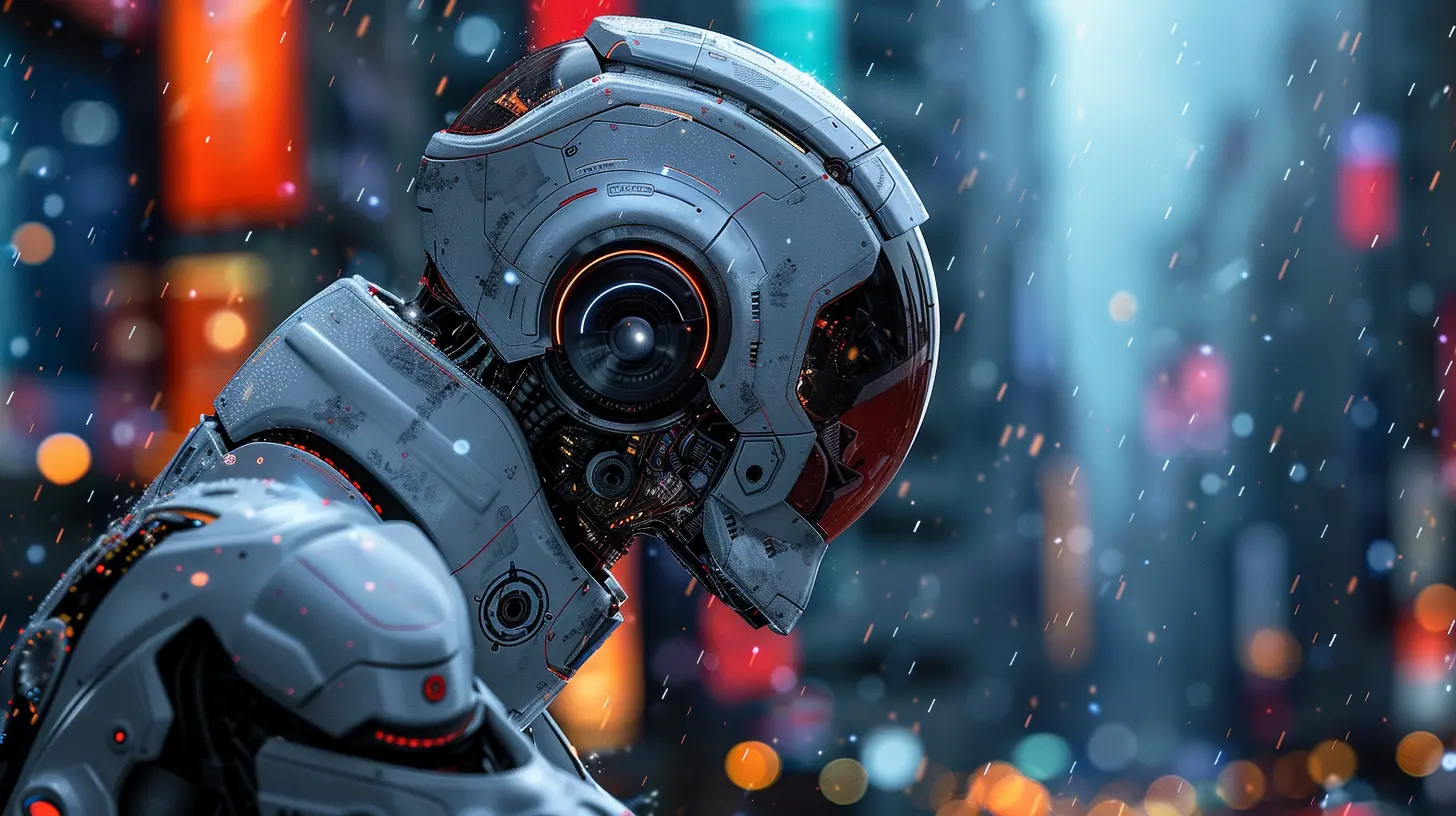
Conclusion
AI is transforming the world of gaming in ways that are both innovative and exciting. From creating smarter NPCs and adjusting difficulty levels to personalizing gaming experiences and enhancing VR, AI is making games more immersive, challenging, and enjoyable. As technology continues to advance, it’s clear that AI will play a crucial role in shaping the future of gaming, creating experiences that are not only fun but also tailored to each individual player.So, the next time you boot up your favorite game and notice how intuitive, dynamic, and personalized it feels, remember that AI is likely behind the scenes, working its magic.
all images in this post were generated using AI tools
Category:
Artificial IntelligenceAuthor:

Jerry Graham
Discussion
rate this article
24 comments
Ember McAdoo
Reality blurs; players awaken.
May 10, 2025 at 6:42 PM

Jerry Graham
Thank you! Indeed, AI is reshaping our perception of reality in gaming, enhancing immersion and creativity.
Kova McMichael
What an exciting exploration of AI's impact on gaming! It's amazing to see how these innovations are reshaping the gaming landscape, enhancing creativity and player experiences. Thank you for shedding light on this fascinating intersection of technology and entertainment. Can't wait to see where AI takes us next!
April 15, 2025 at 1:01 PM

Jerry Graham
Thank you for your enthusiasm! I'm glad you found the exploration of AI's impact on gaming insightful. Exciting times lie ahead as we continue to innovate!
Flora Hurst
Embrace the future—AI is leveling up gaming!
April 13, 2025 at 2:38 AM

Jerry Graham
Absolutely! AI is revolutionizing gaming by enhancing realism, personalizing experiences, and creating smarter NPCs, making the future more exciting than ever!
Soren Reed
Beneath the surface of pixelated realms lies a shadowy revolution. As AI weaves its intricate patterns into gaming, players find themselves not just participants but unwitting pawns in a grander design. What secrets do these algorithms hold, and where will they lead us?
April 11, 2025 at 1:00 PM

Jerry Graham
AI in gaming reshapes player experiences, often in ways we don't realize. As algorithms evolve, they reveal both potential and pitfalls, pushing the boundaries of creativity and control in the gaming landscape.
Benjamin Oliver
AI revolutionizes gameplay, enhancing experiences and creativity.
April 9, 2025 at 7:51 PM

Jerry Graham
Absolutely! AI is unlocking new levels of creativity and immersion, reshaping how we play and engage with games.
Phoebe Gilbert
AI is revolutionizing gaming by enhancing realism, personalizing experiences, and creating dynamic narratives that engage players deeply.
April 8, 2025 at 2:56 AM

Jerry Graham
Absolutely! AI is indeed transforming gaming by making experiences more immersive and tailored to each player, fostering deeper engagement through innovative narratives.
Cara Webster
This article highlights the exciting ways AI is revolutionizing gaming, from enhancing graphics and creating dynamic narratives to improving player experiences. The future of gaming looks promising, and AI is undoubtedly at the forefront of this transformation.
April 1, 2025 at 7:18 PM

Jerry Graham
Thank you for your insights! I'm glad you found the article highlights on AI's impact on gaming exciting. The future indeed looks bright!
Selkie McInnes
Exciting times ahead for gamers everywhere!
February 6, 2025 at 5:11 AM

Jerry Graham
Absolutely! AI is revolutionizing game design, enhancing gameplay, and creating immersive experiences like never before. Exciting times indeed!
Dominic McKale
AI is revolutionizing gaming, creating immersive experiences that inspire creativity and connect players worldwide!
January 29, 2025 at 9:54 PM

Jerry Graham
Absolutely! AI is enhancing storytelling, gameplay, and player interaction, making gaming more engaging and collaborative than ever.
Harrison Cain
AI enhances gameplay, creating immersive gaming experiences.
January 23, 2025 at 12:53 PM

Jerry Graham
Absolutely! AI is revolutionizing gameplay by providing personalized experiences and dynamic environments, making games more engaging and immersive than ever before.
Elle McEachern
Great insights! It’s amazing how AI is reshaping gaming experiences—making them more immersive and personalized. Can’t wait to see what’s next!
January 15, 2025 at 1:26 PM

Jerry Graham
Thank you! I share your excitement about the future of AI in gaming—it's truly transformative!
Nathan Klein
Thank you for highlighting the profound impact of AI on gaming. It's inspiring to see how technology enhances creativity and connection, offering players richer experiences. I look forward to witnessing the innovative journeys ahead for both gamers and developers.
January 7, 2025 at 8:07 PM

Jerry Graham
Thank you for your thoughtful comment! I'm excited too to see how AI continues to shape the gaming landscape and enrich player experiences.
Calyx McPhail
What's next for AI in gaming?
December 30, 2024 at 3:21 AM

Jerry Graham
Next, we can expect AI to enhance gameplay through more realistic NPC behavior, personalized experiences, and dynamic storytelling, making games more immersive than ever.
Taryn Wilkerson
AI's integration into gaming enhances player experiences through personalized narratives and adaptive difficulty, while also revolutionizing game development, promising innovations that redefine interactivity and immersion.
December 23, 2024 at 12:04 PM

Jerry Graham
Thank you for your insightful comment! AI truly is reshaping gaming by creating tailored experiences and pushing the boundaries of innovation.
Myles Wolf
Imagine your gaming buddy being an AI that not only beats you but also critiques your snack choices! Welcome to the future of pixelated duels!
December 17, 2024 at 5:48 AM

Jerry Graham
Exactly! AI is not only enhancing gameplay but also adding a fun layer of interaction. The future of gaming is definitely exciting!
Rosanna McCullough
This article highlights the exciting potential of AI in gaming, from enhancing player experiences to creating more realistic environments. However, it's crucial to consider the ethical implications and impacts on game design and employment.
December 11, 2024 at 12:32 PM

Jerry Graham
Thank you for your insightful comment! You're absolutely right—while AI offers incredible advancements in gaming, it's essential to navigate the ethical considerations and its effects on the industry thoughtfully.
Elsinore Morgan
What an exciting read! It's amazing to see how AI is reshaping gaming experiences, from smarter NPCs to personalized content. The potential for immersive storytelling and dynamic gameplay is thrilling! Can't wait to see where this technology takes us next. Thanks for sharing these insights! 🎮✨
November 30, 2024 at 5:53 AM

Jerry Graham
Thank you for your enthusiasm! I'm glad you enjoyed the article. The future of AI in gaming truly is exciting! 🎮✨
Wilder Hurst
AI is revolutionizing gaming by enhancing realism through advanced graphics, enabling dynamic storytelling with adaptive narratives, and improving player experiences via personalized recommendations. These innovations not only elevate gameplay but also expand possibilities for developers, reshaping the entire industry landscape.
November 28, 2024 at 1:28 PM

Jerry Graham
Absolutely! AI is indeed transforming gaming by introducing cutting-edge graphics, adaptive narratives, and personalized experiences, reshaping both gameplay and development. Exciting times ahead for the industry!
Rhett Sharpe
AI is revolutionizing gaming by enhancing realism, personalizing experiences, and creating smarter NPCs. As technology evolves, it will continue to redefine storytelling and immersion, shaping the future of gaming.
November 25, 2024 at 2:03 PM

Jerry Graham
Absolutely! AI is not just enhancing gameplay; it's fundamentally changing how we engage with stories and characters, making gaming more immersive and personalized than ever before.
Rachel King
Exciting innovations ahead!
November 23, 2024 at 8:17 PM

Jerry Graham
Thank you! The potential of AI in gaming is indeed thrilling, and we can't wait to see how it evolves!
Eva Coleman
AI is revolutionizing gaming, creating immersive experiences and endless possibilities. Embrace the future where technology unlocks our wildest adventures!
November 20, 2024 at 8:09 PM

Jerry Graham
Absolutely! AI is indeed reshaping gaming, offering players unparalleled immersion and creativity. The future looks incredibly exciting!
Sloane Gibson
AI is revolutionizing gaming, creating immersive experiences and dynamic challenges that redefine player engagement. As algorithms innovate storytelling, character development, and even gameplay itself, we stand on the brink of an exhilarating future where technology and creativity unite to elevate our gaming adventures.
November 16, 2024 at 7:30 PM

Jerry Graham
Absolutely! AI is indeed reshaping gaming by enhancing immersion and creativity, making for a truly exciting future in player engagement and storytelling.
Zethryn Sharpe
Artificial Intelligence is revolutionizing the gaming industry by enhancing player experiences through adaptive gameplay, personalized content, and advanced NPC behaviors. AI-driven analytics enable developers to create more immersive environments and dynamic storylines. As technology continues to evolve, we can expect even more innovative applications that will fundamentally reshape how games are designed and played.
November 16, 2024 at 11:08 AM

Jerry Graham
Absolutely! AI is indeed transforming gaming by personalizing experiences, enhancing NPC interactions, and enabling dynamic storytelling, paving the way for a new era of immersive gameplay.
Isadora Baxter
In a realm where pixels dance and dreams intertwine, AI breathes magic into gaming's design. With each leap, innovation ignites, Crafting worlds where players take flight. From foes to allies, a journey unfolds, As technology's tale of adventure is boldly told.
November 15, 2024 at 11:22 AM

Jerry Graham
Thank you for capturing the essence of AI's impact on gaming! Your poetic lines beautifully illustrate the transformative journey and creativity that AI brings to the gaming experience.
MORE POSTS

How AI is Enhancing the Efficiency of Renewable Energy Grids

Smart Cities: Building the Future with Digital Technologies

The Evolution of Digital Assistants: From Voice Recognition to AI Mastery

What Size Smart TV is Ideal for Your Space?

AI in Autonomous Vehicles: Moving Toward Fully Self-Driving Cars

Is Wireless Home Automation the Future?
The Role of Eye Tracking in the Next Generation of VR Headsets

The Role of Automation in Cloud Security Operations

How to Optimize Your VR Headset for Online Meetings and Collaboration

Comparing VR Headsets for PC Gaming: Which One is Right for You?
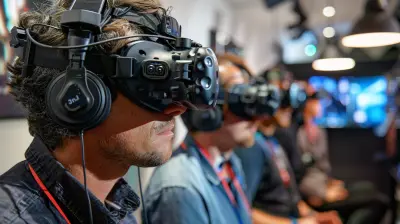
Virtual Reality and the Future of Journalism: Reporting from Inside the Story
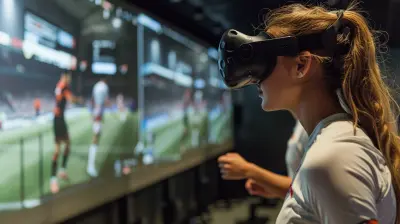
VR Headsets in Sports Training: The Next Big Thing?

The Best AR Glasses for Enhanced Shopping Experiences

The Best Smart TVs for Sports Enthusiasts